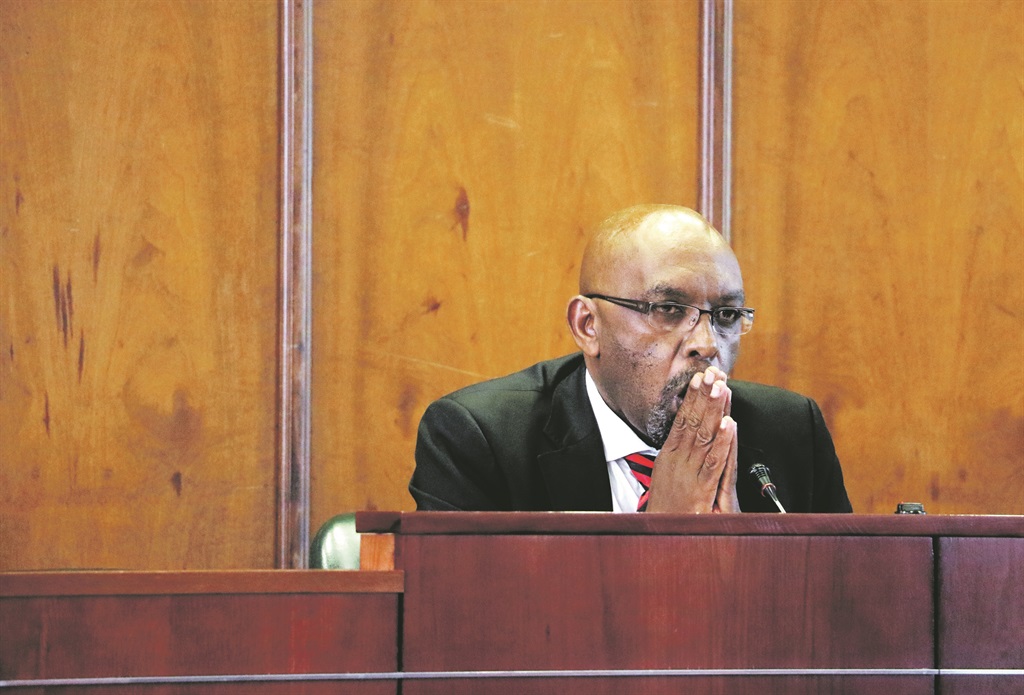
Political parties represented in Parliament will soon be compelled by law to declare sources of their funding.
For the first time since the dawn of democracy, the National Assembly has passed the Political Party Funding Bill which, among other things, will regulate and force parties to make transparent private donations.
The ANC’s Vincent Smith, who chaired the National Assembly committee which processed the bill, called on all political parties to support the bill coming into law.
He said the argument, often advanced, of safeguarding donor’s privacy at the expense of making their identity known to voters, flies in the face of transparency.
“The argument of possible victimisation of donors by the governing party of the day, at municipal, provincial and national level will be addressed later and therefore should not arise going forward,” said Smith.
Smith said the law should ensure that narrow private interests of those with big bank balances or who have easy access to party bosses never usurps the will and interests of the general electorate or party supporters who might not be as monied.
Towards this end, the bill limits the amount individuals or entities can donate to any one political party to R15 million in a calendar year.
The bill also outlaws all donations from foreign governments and their agencies.
“It can never be, that policy preferences adopted by local political parties, are influenced and determined by forces outside of our borders. Our sovereignty must never be sold for 30 pieces of silver,” said Smith.
A further proposal is that political parties are explicitly prohibited from accepting donations from any organ of state, state-owned entities, government departments or from the proceeds of crime.
The bill obliges all represented political parties to declare to the Independent Electoral Commission (IEC) all donations and funds received.
The exception being funds raised through membership fees and subscriptions and any donation less that R50 000 per annum.
“It is through being aware of who is funding political parties that the electorate will be in a position to monitor whether any undue favours are afforded to any individual or entity as payback for a generous donation,” said Smith.
Opposition parties have previously argued that potential donors may be reluctant to donate if their identities are made public because of possible victimisation by the relevant governing party when it comes to the awarding of future business opportunities. But Smith dismissed these arguments as not having merit.
He said laws governing supply chain management and the Public Finance Management Act offer sufficient recourse to victimisation or unfair and uncompetitive practices.
The establishment of the Multi-Party Democracy Fund would also afford donors who do not wish to be associated with any one political party an avenue to make their donations directly into the fund.
The IEC would manage the political party funding received from the National Revenue Fund as well as funds donated by the private sector into the Multi-Party Democracy Fund.
The DA reluctantly supported the bill with the party’s federal council chairperson James Selfe stating that not every politician is corrupt, and not every donor wants favours.
Selfe revealed that in 20 years of raising money for the DA and its predecessors, only one donor has ever asked him to favour his business “and I told him to get lost”.
In his experience, Selfe said most donors wanted South Africa to succeed and its people to prosper, and they wish to make a contribution to a party that is achieving precisely that where it governs.
Selfe mentioned the DA’s experience with German fraudster Jurgen Harksen as a lesson for the party that it was essential to act ethically when raising funds, and it developed a code to which its fundraisers should subscribe.
“Thus DA fundraisers are not allowed to promise donors anything. If a fundraiser holds executive office, he or she must be accompanied by another member who can certify that no inducement was asked for by, or offered to, a donor.”
He raised concerns over the “elaborate bureaucracy” in the IEC to administer the funds and enforce compliance with the provisions of the bill, that will cost, in year one, R20 million, and much more subsequently.
“Because of the mendacity and turpitude of those responsible for state capture, I suppose this bill is necessary. But it doesn’t deal with the Gupta in the room,” he said.
“To ask a political office bearer for a favour in return for a donation constitutes the common law offence of bribery. It is also an offence in terms of the Prohibition and Combatting of Corrupt Activities Act, which, depending on the seriousness of the offence, can attract a life sentence. Yet, apart from poor old David Malatsi, we are still to see a single politician or donor charged with bribery or under [this law],” he noted.
Selfe doubted that the bill would stop corruption or state capture, saying instead it wouls make it more difficult for honest parties to raise money honestly.
The Economic Freedom Fighters (EFF) were the only party that outrightly opposed the bill, mainly because of a section which prohibits donations to members of a political party.
Section 10 of the bill states that “no person or entity may deliver a donation to a member of a political party other than for party political purposes”.
EFF MP Natasha Ntlangwini said the section is “extremely problematic” as it prevents members from assisting others financially.
She said since its inception, the EFF has funded students and has assisted poor families to bury their loved ones and the Party Funding bill will stop that if it is passed into law in its current form.
Ntlangwini said the EFF had asked for total transparency and disclosure of political party funding so that the public is aware of who funds the parties that represent them in Parliament because who funds the political party has a great impact in determining the party’s policy objective, especially when it comes to business.
She suggested this was in fact the reason the DA rejected expropriation of land without compensation and the ANC withdrew its motion to nationalise the SA Reserve Bank.
“As the very people who stole our land, the Reserve Bank exploits our people on a daily basis, the DA and the ANC could not bite the hand that feeds them.”
The bill in its current form, Ntlwangwini argued, will do little or nothing to bring about transparency but instead it would replicate current political power imbalances, by giving disproportional funding to the ANC with no legal or constitutional basis to do so.
The My Vote Counts’ Janine Ogle welcomed the passing of the bill, saying she was surprised at the speed it went through Parliament.
Ogle said her organisation was still concerned however that the bill doesn’t prohibit companies that do business with the state from funding political parties and the bill doesn’t cover the local government sphere.
The smaller parties sounded happy with the proposed shift in the distribution formula.
They have previously complained about the application of the Political Parties Funding Act which stipulates that 90% of the funds will be allocated proportionally and only 10% on an equal basis.
The proposed bill will allocate two-thirds of the funds proportionally and a third on an equal basis.
The ANC announced in May last year that it would support disclosure on private political party funding but that it wanted increased support from the national coffers.
ANC chief whip Jackson Mthembu described as “negligible” the R150 million that political parties received in the 2017/18 financial year. The amount is proportionally allocated to political parties.
The bill has been referred to the National Council of Provinces for concurrence.




 Publications
Publications
 Partners
Partners








